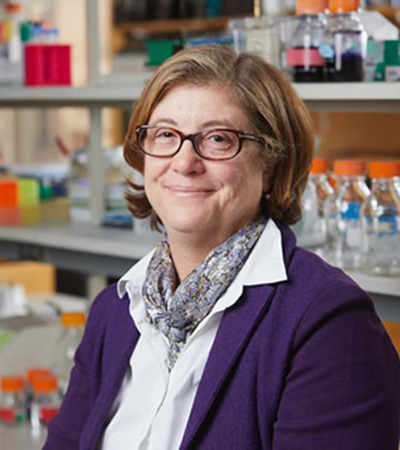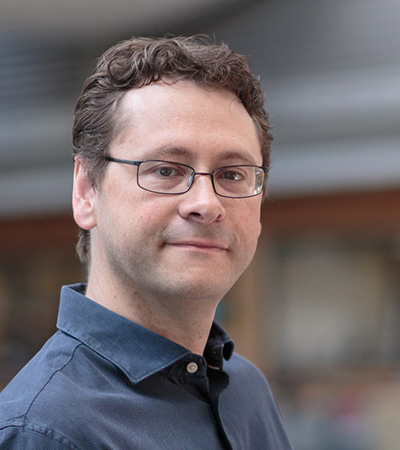Honors for Baserga, Matunis and Tate
Baserga elected to AAA&S
Susan Baserga has been elected to the American Academy of Arts & Sciences, Biochemistry, Biophysics and Molecular Biology section. She is being recognized for her excellent scientific achievements and will be inducted this month during a ceremony in Cambridge, Massachusetts.

Baserga is a professor of molecular biophysics and biochemistry, of genetics and of therapeutic radiology at the Yale University School of Medicine. Her lab focuses on understanding how ribosomes are made in eukaryotic cells. Specifically, they study the pathogenesis of ribosomopathies, diseases caused by abnormalities in ribosome biogenesis that can induce cancer.
Baserga is a fellow of the National Academy of Inventors and a member of the National Academy of Medicine. She has received the Connecticut Technology Council Women of Innovation in Research and Leadership Award, the Charles W. Bohmfalk Prize for basic science teaching at the Yale School of Medicine and the American Society for Biochemistry and Molecular Biology’s William C. Rose Award for outstanding research and commitment to training young scientists. She is a 2023 ASBMB fellow and chairs the society’s Women in Biochemistry and Molecular Biology Committee.“We honor these artists, scholars, scientists and leaders in the public, non-profit and private sectors for their accomplishments and for the curiosity, creativity and courage required to reach new heights,” David Oxtoby, AAA&S President, said in a press release. “We invite these exceptional individuals to join in the Academy’s work to address serious challenges and advance the common good.”
Matunis honored for JBC research
Michael Matunis won the 2024 Shikani/El-Hibri Prize for Discovery and Innovation from the Johns Hopkins Bloomberg School of Public Health. Fuad El-Hibri, a businessperson in the biotech industry, and Alan Shikani, an otolaryngologist and graduate of Johns Hopkins, created this prize to reward innovations in basic science that could lead to public health solutions.

Matunis is a professor of biochemistry and molecular biology at Johns Hopkins. His research focuses on a class of small ubiquitin-like modifier proteins, or SUMOs. The prize recognized his lab’s recent discovery of a role for SUMO in cytosolic protein quality control. They showed that SUMO1 is required for the turnover of a particular type of misfolded protein in yeast as well as humans. The winning research was published last year in the American Society for Biochemistry and Molecular Biology’s Journal of Biological Chemistry. Matunis is a fellow of the American Society for Cell Biology and the American Association for the Advancement of Science.
“This insight into how SUMO1 works could lead to new treatments for diseases caused by protein misfolding like cancer, heart disease and Alzheimer's,” Ashani Weeraratna, a professor and chair of biochemistry and molecular Biology at Johns Hopkins, said.
Tate wins RSC prize
Ed Tate and a team of researchers won the 2024 Chemistry Biology Interface Horizon Prize: Rita and John Cornforth Award from the Royal Society of Chemistry. The Cornforths were groundbreaking research partners, and John Cornforth won the Nobel Prize in chemistry in 1975 for their work on the stereochemistry of enzyme-catalyzed reactions.

Other Horizon Prize-winning team members hail from the University of Liverpool, Liverpool School of Tropical Medicine, University of Bonn, AstraZeneca and Eisai Co., Ltd. Their collaborative drug discovery research led to the first synthetic drug candidate for tropical diseases caused collectively by roundworms and the bacteria Wolbachia.
Tate is a professor and the chair of chemical biology at Imperial College London. His research interests lie at the intersection of organic chemistry, biology and medicine. Tate’s lab uses medicinal chemistry and chemical synthesis to find therapeutics for infectious diseases, cancer and more. He also founded Myricx Bio, a biotech company focused on the discovery and development of selective cytotoxic payloads for antibody drug conjugates, based on inhibitors of N-myristoyltransferases, for the treatment of cancer.
A fellow of both the RSC and the Royal Society of Biology, Tate has received the Wain Medal Lecture and Prize, the President and Rector's Award for Excellence in Research Supervision, the Norman Heatley Award, the Cancer Research U.K. Program Foundation Award, the Sir David Cooksey Translation Prize and the RSC Corday–Morgan Prize.
Enjoy reading ASBMB Today?
Become a member to receive the print edition four times a year and the digital edition monthly.
Learn moreGet the latest from ASBMB Today
Enter your email address, and we’ll send you a weekly email with recent articles, interviews and more.
Latest in People
People highlights or most popular articles

Building a career in nutrition across continents
Driven by past women in science, Kazi Sarjana Safain left Bangladesh and pursued a scientific career in the U.S.

Kiessling wins glycobiology award
She was honored by the Society for Glycobiology for her work on protein–glycan interactions.

2026 ASBMB election results
Meet the new Council members and Nominating Committee member.

Simcox wins SACNAS mentorship award
She was recognized for her sustained excellence in mentorship and was honored at SACNAS’ 2025 National Conference.

From humble beginnings to unlocking lysosomal secrets
Monther Abu–Remaileh will receive the ASBMB’s 2026 Walter A. Shaw Young Investigator Award in Lipid Research at the ASBMB Annual Meeting, March 7-10 in Washington, D.C.

Chemistry meets biology to thwart parasites
Margaret Phillips will receive the Alice and C. C. Wang Award in Molecular Parasitology at the ASBMB Annual Meeting, March 7-10 in Washington, D.C.
